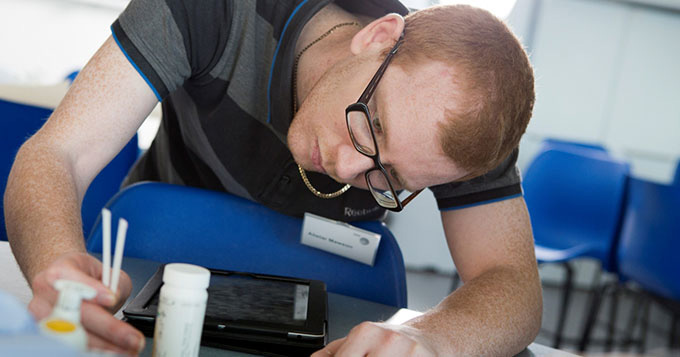
England falling behind on delivering world-class apprenticeships
England does not have a world-class apprenticeship system according to a new report by the University of Derby and the Pearson education group. Examining the apprenticeship ‘offer’ in seven different countries, the report identified a number of key characteristics as being particularly important to delivering world-class apprenticeships, including:
- they last between 3 and 4 years
- they deliver broad and in-depth scientific and industrial skills and knowledge
- they deliver high-quality knowledge-based education and training
- recognition is through an occupational title on completion of the training
- apprentices acquire all the skills and knowledge necessary to work effectively in an occupation
- apprentices become skilled workers in an occupational area with a critical and creative approach
- progression routes into employment as well as into further education and training.
The report comes on the back of Science Industry Partnership’s first skills strategy, which said that the UK economy will need to attract and train up to 73,000 new science apprentices between now and 2025 to ensure it remains globally competitive.
“Identifying and applying standards in apprenticeships is important because apprenticeship training, especially if delivered at a world-class standard, can raise the number of people in employment, increase individual and company productivity and enhance economic growth.”
World Class Apprenticeship Standards
Science Council comment
Many of the characteristics that define a world-class apprenticeship will chime with science professional bodies, who continue to uphold professional standards throughout the education system.
Science is an ever-developing and evolving field and to adapt and flourish, both businesses and individuals will need to keep pace. Apprenticeships therefore need to provide skills and knowledge that are valuable to more than one employer or role and meet the broader requirements of the economy. Linking apprenticeships to professional registration can help ensure that individuals are trained for occupations which recognise their knowledge and practical experience alongside their qualifications.
It is noticeable that across nearly all the countries the report looks at, the length of apprenticeship training is between 3 and 4 years. This compares to the UK where the minimum length of training is 1 year. This has been a key concern for science apprenticeships; 1 year is not a sufficient amount of time for learners to develop the breadth and depth of skills and knowledge that are required by employers.
While the government has sought to raise the status and esteem of apprenticeships – through protecting the term in law, driving up the number of public sector apprenticeships, and the apprenticeship levy – it is evidence from the report that other countries are leading the way. What works in Germany and Australia may not work here, but the Prime Minister’s new Apprenticeship Taskforce would do well to look again at how other countries deliver their apprenticeship systems.
Professional bodies have welcomed the government’s increasing focus on apprenticeships and vocational education. However, this focus must be on quality as well as quantity. Most significantly for professional bodies in science, this means ensuring that apprenticeship qualification standards are maintained and benchmarked across disciplines and employment sectors.
Apprenticeship standards for Laboratory Technician and Laboratory Scientist are linked to the Science Council’s registers for Registered Science Technician (RSciTech) and Registered Scientist (RSci) respectively.
The Science Council has also created a quick-check tool to help scientists and technicians decide which of our professional registers is right for you.
